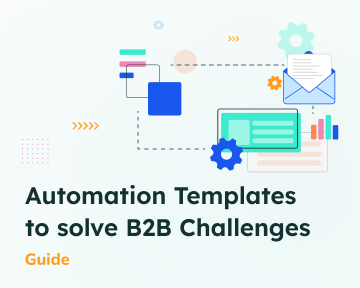A lot has changed in the past year, with the pandemic bringing new trends and technologies to the forefront. As we move into 2023, it’s crucial to stay informed about the latest market trends in order to make informed decisions that keep our business competitive. Here are five key business and technology trends to keep an eye on in the coming year.
1. 5G Driving Data Data Collection And AI Capabilities.
5G has the ability to deliver higher data speeds, greater reliability, sub-10ms latency and has the potential to boost business operations. 5G is crucial for businesses that are striving to offer new services and track insights in order to stay ahead of the competition in today’s world of technology advancement. Development of the 5G mobile network is driving data collection and analysis which means that businesses will have more data from more diverse sources at faster speeds and they will be able to put that intelligence to work in real time. Some examples of the combination between 5G and AI can be seen in intelligent data analysis, remote medical control, remote control of traffic lights, and virtual reality monitoring of machinery.
The ASEAN region has set itself apart as a centre of 5G innovation, with Malaysia, Singapore, Thailand, the Philippines and Indonesia helping lead the way in the global adoption of 5G.
Source: Exploding Topics, 2023
Malaysia’s 5G network has achieved almost 50% coverage of populated areas with some 3,900 sites as at end-2022 — exceeding the target of 40%. Similarly, Singapore has successfully become the first country in the world fully covered by standalone 5G. This gives local businesses the base for the latest technological development and application of the most advanced solutions. While it is comfortable to stick to the usual way of doing business, managers and business owners can realise the future opportunities created by 5G and AI capabilities and lead their company development in the right direction.
2. Growing importance of data privacy and security.
Consumer technology today is enabled to collect, produce and analyse data on everything from our behaviour to even health conditions making it possible for almost all consumer technology to have the potential of becoming a marketing platform. With that said, we can expect to see an increased range of new media and marketing solutions that are making the most out of this opportunity. However, this new opportunity also raises the importance of the problem of cybersecurity threats.
The unconscious behaviour of sharing personal data online can also mean that many people underestimate the risks of using unsecured IoT devices or are not aware about the dangers of a security breach. In October 2020, Singapore home IP cameras were hacked and the footage were uploaded on pornographic websites. Beyond hacked IP cameras, other threats also include crooks hacking a home router to access data that victims sent over the Internet, as well as files on computers and devices connected to the home network. These are just a few of the many negative impacts of a cybersecurity attack.
With increasing concerns about data privacy and security, businesses will need to prioritise these issues in their digital marketing strategies in 2023. A good way to start is by identifying and prioritising your most critical assets, then regularly stress-testing your environment to improve your breach-response capabilities. From there, you can maintain situational awareness by monitoring all environments and attack surfaces and consistently stay informed about the latest IT solutions that can enhance the security of your data.
3. Artificial Intelligence (AI) improves customer experience and saves costs.
AI technology application has already evolved from basic communication and assistance on tasks to understanding peoples’ behaviour. OpenAI and other lay-consumer-friendly tools will power an AI-knowledge revolution in 2023. As AI is able to automate labour-intensive processes, it can reduce labour costs while also improving quality. AI is becoming affordable and more and more companies are implementing the technology into a wide array of use cases.
Did you know?
According to an analysis by Boston Consulting Group, AI can reduce conversion costs by up to 20 percent, with up to 70 percent of the cost reduction resulting from higher workforce productivity.
Source: Boston Consulting Group, 2022
Companies around the world are looking for ways to automate processes and increase efficiency and here is where AI can be truly helpful. However, AI still has its limitations and cannot fully replicate the work of real humans just yet, but instead it will assist humans allowing them to concentrate on more vital and imaginative tasks.
Multiple AI tools are already available in the market (and their accuracy constantly improves), making it a seamless process to integrate them into your business’s day to day processes, starting from chatbots, spelling checkers to workflows, marketing automation solutions, and many more.
4. Personalisation
Personalisation, made possible through digitalisation, allows for tailored and dynamic communication with individual customers. As smart devices become presented everywhere and are able to produce more data than ever before, ads and advertisers are getting a clearer picture of their consumers. This enables better-targeted marketing with messaging that resonates well with their audience. With that said, personalisation of marketing messages will only improve in time.
Businesses no longer require massive resources to take advantage of personalisation. The nature of technologies such as dynamic creative optimisation (DCO) allows campaigns of any size to utilise personalisation, such as improved media efficiency and increased purchase intent.
In Constant Contact Lead Gen and CRM marketing automation software this function is realised via Dynamic Landing Pages that are automatically personalised according to the buyer persona, which ultimately helps to increase conversions.


5. The Rise of Social Media Commerce
Social commerce can be summarised as selling products via social media in different ways. It is different from ecommerce in its classical understanding as social commerce allows customers to make their purchase within their social media experience, without leaving the platform and not through a separate e-commerce platform.
Did you know?
The social commerce market size is expected to hit $1.3 trillion in 2023, this is a 30.8% increase from the previous year, when social commerce sales worldwide amounted to $958 billion.
Source: Oberlo, 2022
Accenture predicts social commerce will grow three times as fast as traditional e-commerce, hitting $1.2 trillion by 2025. It is predicted that brands will invest in social commerce in the coming months as it provides a more seamless experience for its customers. To remain competitive, you may need to consider developing your social commerce strategies and grow it alongside the trend.
As we can see, availability of data on consumers gained mainly though smartphone devices enables a new world of business opportunities. Moreover, since technological advancement is accelerating, it is essential that we stay up to date on developments and accomplishments in order to adopt the most recent solutions.
Spot any of these trends that may leave an impact on your business in 2023? Is your business ready for the upcoming year ahead? Do consider both pros and cons to the trends above and leverage on the ones that best suit your business needs.
What's next for you?
As discussed above, besides creating new opportunities, technology today can also reduce business costs significantly. If you are looking for a tool to help automate all your business processes, look no further and start automating your business processes now with Constant Contact Lead Gen and CRM Behavioural Marketing Automation software.
Find out more on how you can reduce your operation costs and send out personalised communication by applying simple automations to your business, in our Guide: Automation Templates to solve B2B Challenges.





